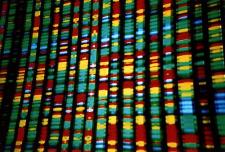Will the Alt-Right Promote a New Kind of Racist Genetics?
By Sarah Zhang,
The Atlantic
| 12. 29. 2016
Jedidiah Carlson was googling a genetics research paper when he stumbled upon the white nationalist forum Stormfront. Carlson is a graduate student at the University of Michigan, and he is—to be clear—absolutely not a white nationalist. But one link led to another and he ended up reading page after page of Stormfront discussions on the reliability of 23andMe ancestry results and whether Neanderthal interbreeding is the reason for the genetic superiority of whites. Obsession with racial purity is easily channeled, apparently, into an obsession with genetics.
Stormfront has been around since the ’90s, which means it’s been around for the entirety of the genomic revolution. The major milestones in human genetics—sequencing of the first human genome, genetic confirmation that humans came out of Africa, the first mail-in DNA ancestry tests—they’re all there, refracted through the lens of white nationalism. Sure, the commentators sometimes disagreed with scientific findings or mischaracterized them, but they could also be serious about understanding genetics. “The threads would turn into an informal tutoring session and journal club,” observes Carlson. “Some of the posters have a really...
Related Articles
By Alex Polyakov, The Conversation | 02.09.2026
Prospective parents are being marketed genetic tests that claim to predict which IVF embryo will grow into the tallest, smartest or healthiest child.
But these tests cannot deliver what they promise. The benefits are likely minimal, while the risks to...
By Steve Rose, The Guardian | 01.28.2026
Ed Zitron, EZPR.com; Experience Summit stage;
Web Summit 2024 via Wikipedia Commons licensed under CC by 2.0
If some time in an entirely possible future they come to make a movie about “how the AI bubble burst”, Ed Zitron will...
By Arthur Lazarus, MedPage Today | 01.23.2026
A growing body of contemporary research and reporting exposes how old ideas can find new life when repurposed within modern systems of medicine, technology, and public policy. Over the last decade, several trends have converged:
- The rise of polygenic scoring...
By Daphne O. Martschenko and Julia E. H. Brown, Hastings Bioethics Forum | 01.14.2026
There is growing concern that falling fertility rates will lead to economic and demographic catastrophe. The social and political movement known as pronatalism looks to combat depopulation by encouraging people to have as many children as possible. But not just...




